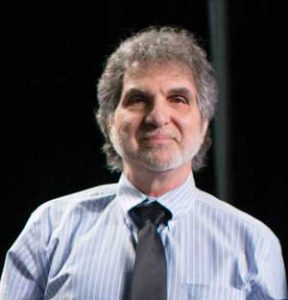Bringing closure to the families of the missing

According to the Defense POW/MIA Accounting Agency (DPAA), 82,701 service members spanning from World War II to now are still missing or unaccounted for.
DAV is diligently working with the Department of Defense and other veterans service organizations (VSOs) to eliminate that number, with the goal of giving survivors of these men and women some longawaited closure.
One example of those efforts involves the remains of servicemen who died during the 1941 Pearl Harbor attack.
“During a conference call last year, the DPAA polled the participating VSOs on a decision to disinter or not to disinter the 388 remains of Marines and sailors from the USS Oklahoma,” said Vincent Darcangelo, DAV Interim POW/MIA Committee Chairperson. “In the interest of ‘fullest possible accounting,’ I voted to disinter.”
In April 2015, the Pentagon announced these remains associated with the ship would be exhumed from the National Memorial Cemetery of the Pacific and sent to the DPAA laboratory for forensic, DNA and genetic testing in the hope of identifying the fallen.
The remains associated with the Oklahoma are not the only work DPAA is doing regarding POW/MIA service members. The agency has teams all over the world looking for the final resting places of missing military personnel.
Darcangelo said that, so far in 2016, DPAA has announced positive identification of 46 military members previously listed as missing in action— 25 from World War II, 18 from Korea and three from Vietnam.
But many more families are still waiting.
“There are still 1,618 missing in Vietnam,” said Cindy Stonebraker, board member of the National League of POW/MIA Families. “My father is one of them.”
Air Force Lt. Col. Kenneth Stonebraker was shot down over North Vietnam on Oct. 28, 1968.
“He was a navigator on a nighttime recon mission in an RF-4C,” Stonebraker said. “It gives you hope knowing there are people on the ground over there actively working on finding him and others.”
Darcangelo agreed and called the POW/MIA subject one of importance and passion.
“DAV demonstrates its unyielding commitment of bringing each of our missing brothers and sisters home to family and loved ones waiting decades for answers,” he said.
The DPAA said VSOs are an integral part of accounting for the missing.
“Partnering with the veterans service organizations is extremely important to DPAA and our mission of accounting for Americans who made the ultimate sacrifice for our freedom,” said Johnie E. Webb Jr., DPAA deputy director of outreach and communications. “The VSOs play a major role in keeping the POW/MIA issue before the American public and the members of Congress to continue support for the issue. Their members remember the military creed, ‘I will never leave a fallen comrade,’ and pledge to do all they can to assist us in never leaving a fallen comrade.”
Stonebraker’s family will continue their vigil for her father.
“Last Wednesday, I attended the funeral of someone who was a recovery,” she said. “It gave me hope. I thought, ‘Here’s a family member who has lived a life like I have.’ I saw closure, and it gives you hope.”






